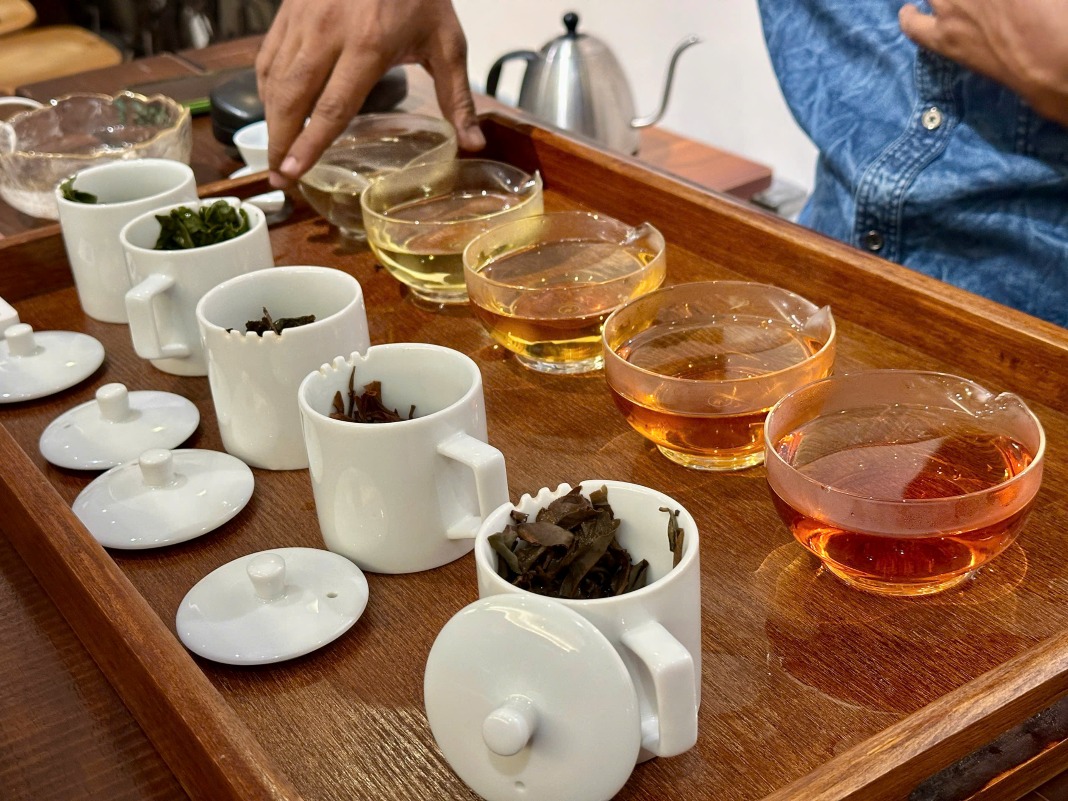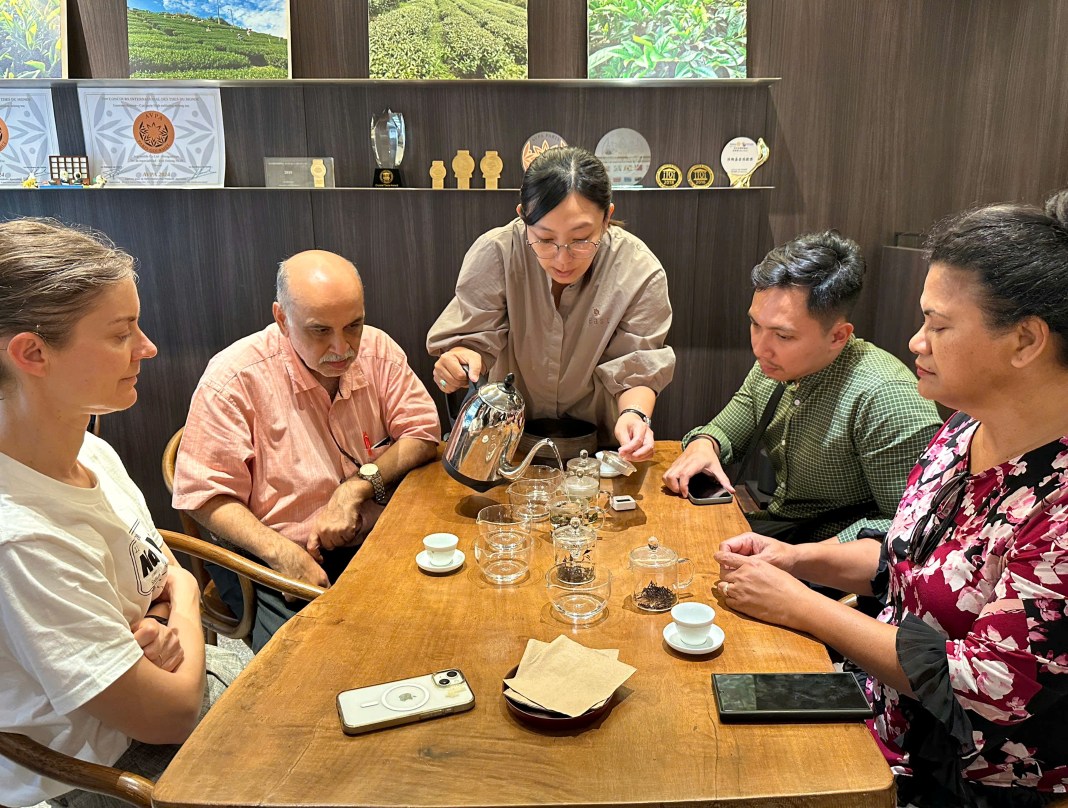HCMC – In Taiwan, tea is more than a drink—it is an experience to be savored. From the moment visitors step into a traditional tea shop, the ritual of brewing and tasting unfolds, inviting them to slow down, inhale the fragrant aromas, and appreciate the flavors of each leaf. Every sip reflects centuries of craftsmanship and the simple joy of tea enjoyment.
A journey into tea culture on Dihua Street
Along Dihua Street, the heart of Dadaocheng District in Taipei, every shopfront tells a story. Stretching about a kilometer from north to south, the street could easily take a few hours to wander, revealing a mix of architectural influences.
Dadaocheng’s history lies in the wholesale merchandise trade, with tea taking center stage in the export business from the mid-19th century onward. Today, many of the district’s historic tea shops and factories are still in operation.
For visitors, stepping inside one of these tea shops is like stepping back in time. Tea is not just consumed there; it is experienced through a ritual of brewing, tasting, and appreciation that has been perfected over generations.
Tea tasting: From leaves to brew
Guided by experienced tea masters, participants learn the essentials of Taiwanese tea culture, from identifying different tea varieties to mastering the art of brewing.
A typical workshop includes tasting five types of tea, with hands-on brewing practice for one selected variety. The tasting session follows a deliberate order, starting with lighter teas and gradually moving to stronger, more fermented varieties. This progression allows participants to fully appreciate the evolving flavors and aromas with each brew.

The tea tasting typically begins with Bi Luo Chun Green Tea, grown at over 300 meters in Sanxia. This hand-picked tea is known for its delicate notes of roasted chestnut, seaweed, fresh greens, and floral hints. Lightly roasted, it offers a refreshing, mildly astringent taste with a sweet aftertaste.
Next is Grand Gold Oolong Tea, cultivated above 2,000 meters. Made from the finest selected leaves and enhanced through traditional charcoal roasting, it features an orchid-like aroma and a smooth, sweet finish, delivering a pure high-mountain flavor with layered complexity.
The third tea is Kungfu Dongding Oolong Tea, harvested at 800 meters. This medium-fermented and roasted tea is distinguished by its caramelized fragrance and ripe fruit notes. Its golden amber liquor is smooth and well-balanced, offering a mellow, soft taste.
Oriental Beauty Oolong Tea follows—a heavily fermented, lightly roasted tea celebrated for its honey, tropical fruit, and rose aromas. Its fragrance blends harmoniously with natural sweetness, resulting in a perfectly balanced, captivating cup of delicate tea.
Last but not least is Ruby Black Tea No.18, grown near Sun Moon Lake in Nantou County. This fully fermented tea is notable for its mint and cinnamon fragrance, complemented by subtle hints of citrus and natural sweetness.
Mindfulness in every sip
In Taiwan, tea appreciation is not merely about drinking tea but about embracing a centuries-old art form. The process of brewing and serving tea is considered a ritual, reflecting respect for guests and attention to detail in every step.
Before brewing, tea leaves are often rinsed briefly with hot water to remove impurities and “awaken” the leaves. The ceremony begins by warming the teapot and cups to preserve the temperature. Tea leaves are then placed into the pot, with the water temperature and steeping time carefully adjusted for each variety. Careful control of water temperature and steeping time ensures the best extraction of flavor without bitterness.
Tea is poured into small cups so that each participant can savor its fragrance and delicate sweetness. In traditional tea ceremonies, the slow, deliberate process encourages mindfulness, relaxation, and a deeper connection with nature.









